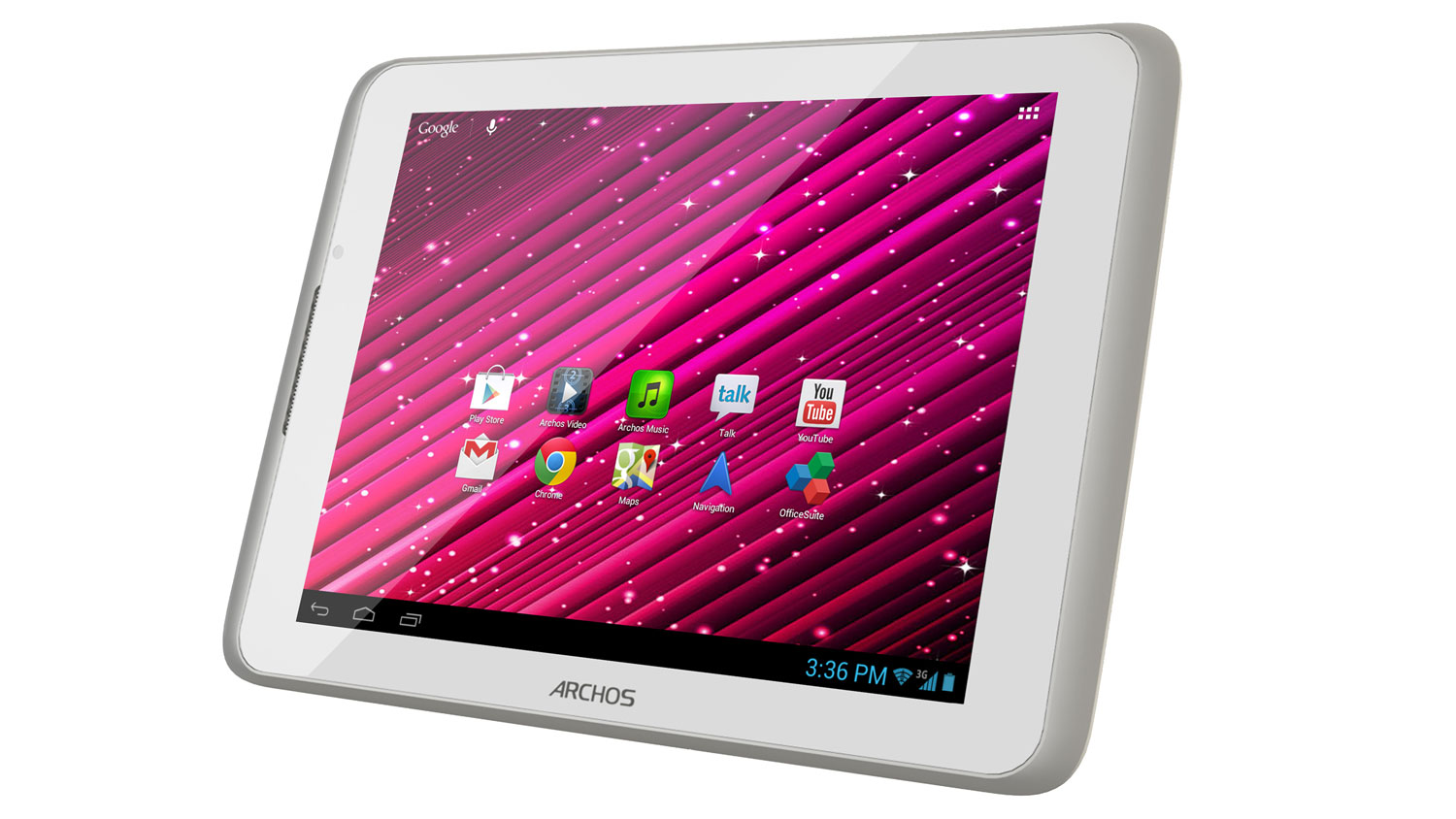Why you can trust TechRadar
The user interface on the Archos 80 Xenon is stock Android Jelly Bean, with no tweaks to speak of, though the inclusion of a microphone to power Google Voice extends the experience, as does GPS and a gyroscope.
Sadly the 80 Xenon only sports Android 4.1, and seeing as Android 4.4 KitKat is now out, it does feel a little behind the times.
The Archos 80 Xenon is not as snappy as an iPad mini or Acer Iconia A1, but it still does a decent job and as a simple web browsing device it's fit for purpose.
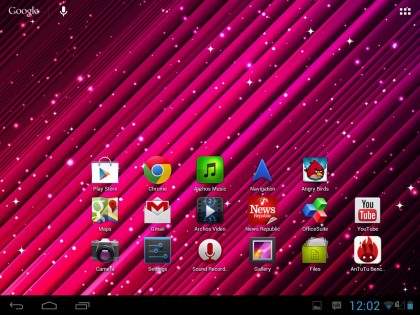
Swiping and touch-sensitivity are acceptable; although it lacks the immediacy of pricier tablets, but for the money it's actually faster and nicer to use than I had expected.
The GPS worked well during my test with Google Maps, and Google Voice was fast and accurate, though the Google Sky Map app couldn't get a fix on where I was pointing the 80 Xenon.
Using the Chrome browser, which was installed on the 80 Xenon as a default, pages loaded quickly during my tests over Wi-Fi and 3G. Touching small items on the screen, such as Chrome's tiny 'new tab' icon, can sometimes be troublesome, taking a few - sometimes as many as three or four - touches before an action is completed.
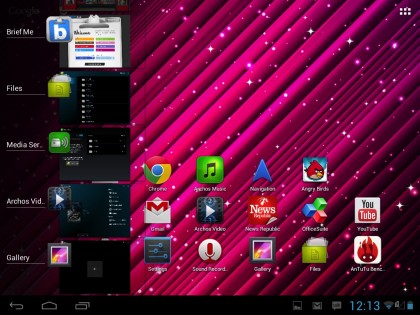
Despite immediately visiting the settings pages to disable the darned annoying vibrations, sounds and clicks that accompany the pop-up virtual Android keyboard as a default, the 80 Xenon insisted on reinstating them upon the next fire-up.
Sign up for breaking news, reviews, opinion, top tech deals, and more.
This in itself was enough to put me off using the product as a go-to device for surfing the web during my long-term test, despite it always being within easy reach.
Media
Unlike most Android tablets, media is handled by Archos-own software. That's hardly surprising since it was Archos that pioneered play-anything touchscreen media devices yonks before the iPad appeared, but what is a surprise is the less-than-total file support.
In our test with a bunch of video files the 80 Xenon managed to play MOV, MP4 and AVI files - as it claimed to - but not MKV or AVC HD files. Try and play one of the latter and I was re-directed to an official app on Google Play called Archos MPEG-2 Plugin, which costs £4.07. Whoah there - that's a bit naughty!
A free third-party app called Archos Video All Codecs Plugin is also available, though in my test it didn't solve any of the problems.
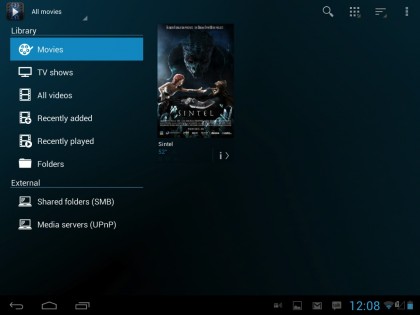
In terms of design, I like the Archos Video software, which has separate sections for movies, TV shows and both 'recently added' and 'recently played', with cover art displayed (and fetch-able from the web - a nice feature indeed) in a swipe-through carousel, as well as a simple list of files.
The over-reaching Archos Media Library includes options to play files from a NAS drive or any UPnP device, though the MP4 and AVI files we were able to initialise stuttered and were unwatchable.
Movies on the 80 Xenon are pretty good, though HD files tend to stutter. Most video is colourful and has enough contrast and detail, and the viewing angle is acceptable, though brightness drains when viewed off-axis.
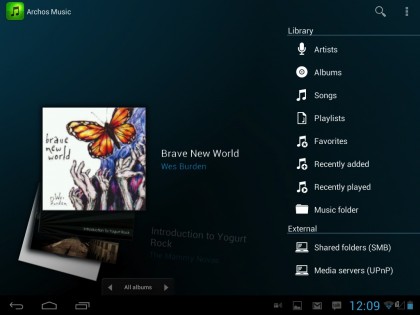
Music file support extends from MP3 to OGG, FLAC and WAV files, though the Archos Music app is so simple it barely justifies itself.
Through-headphones audio is fine, though the built-in speakers are bereft of any suggestion of bass and can't begin to unravel music or movies, but they're acceptable for the odd cat video on YouTube.
The 80 Xenon isn't really made for games. Its gyroscope is a little slow on the uptake and its processor not quite up to the job, though most games are playable enough. However, when re-orientating the 80 Xenon the screen takes just a little too long to catch up. It's fine for Angry Birds and most casual games, but don't expect high-performance high jinks.
Reading books is where the 80 Xenon's clarity, brightness and speed come into view. Text from an ebook is just about clear enough to read, but page-turning takes a touch too long and the screen's brightness controls aren't nearly subtle enough; it's not an issue if you're reading in daylight but in a blackout it's like staring at a torch. The Kindle et al can rest easy.

Jamie is a freelance tech, travel and space journalist based in the UK. He’s been writing regularly for Techradar since it was launched in 2008 and also writes regularly for Forbes, The Telegraph, the South China Morning Post, Sky & Telescope and the Sky At Night magazine as well as other Future titles T3, Digital Camera World, All About Space and Space.com. He also edits two of his own websites, TravGear.com and WhenIsTheNextEclipse.com that reflect his obsession with travel gear and solar eclipse travel. He is the author of A Stargazing Program For Beginners (Springer, 2015),
